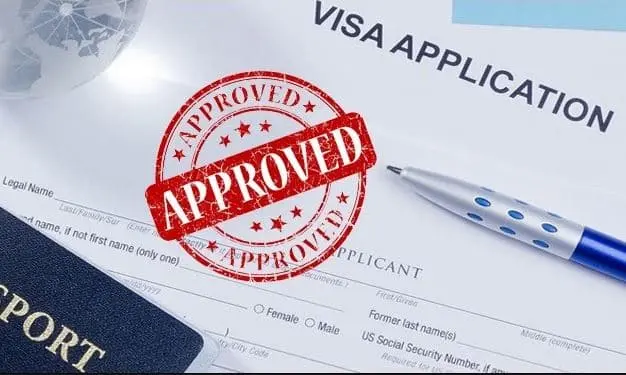Even if you have a fully funded MSc or PhD scholarship in the United States, your visa may still be rejected by the interview officer at the U.S. embassy in Nigeria.
Also, speaking refined English or showing extreme brilliance in your field of study isn’t a ticket to get a Visa at the U.S. embassy in Nigeria.
This article provides expert tips on how to avoid such rejection during a visa interview at the U.S. embassy in Nigeria.

Reasons for visa denials
Some of the U.S visa denials include, but are not limited to the following:
- Information that can’t be verified immediately
- Failure to fill out the DS-160 form properly.
- For security reasons
- For labor-related reasons
Other U.S. visa rejected reasons can be found in our earliest article. Although the government of the United States says you will be notified of the section of the law that applies to the rejection reason.
Most times, no reasons are given and you will be worried about why your visa was rejected and what to do.
How To Avoid Visa Rejection at The U.S. Embassy in Nigeria
According to a Canadian-based scholar who won scholarships worth a million dollars, Dr. Olumuyiwa Igbalajobi says you are not alone.
Sharing some tips on his X account at @olumuyiwaayo, the founder of Scholarships Caf says:
“It’s becoming a trend that even applicants with fully funded MS/Ph.D offers in the US are being denied visas at the US embassies in Nigeria.”
1) If you’ve experienced U.S. visa denial even though have a scholarship visa, here are the top ways to avoid such rejections:
2) For a scholarship visa, expect questions to come in this line. So, you need to understand your research questions and study plan.
3) Don’t discuss how the U.S. has been your dream country. If you show that you love the U.S. more than your country, you may appear desperate doing so. Don’t appear desperate.
4) If you are in Nigeria, it is advisable to talk to previous scholars with experience in both Lagos and Abuja embassies.
5) Join groups that offer free mock visa interview sessions.
6) If you have any social media posts that are incriminating or disparaging U.S. policies, it is better to delete them even before submitting your visa application.
While you might think that you can enjoy the privacy to post whatever you like or air your view on any issue, you can continue to condemn the policies of the U.S. and want the same country to be nice to you during a visa interview.
7) Consular interview officers do carry out background checks on applicants before the interview schedule, and ensure to vet your social media posts ahead of submitting your visa application.
8) Ensure your social media is devoid of sexist posts or controversial political views that could expose the U.S. government to violence or hatred.
9) Ensure to practice relevant questions beforehand
10) Dress properly
11) Appear confident
12) If you are married, avoid scheduling interviews for yourself and your spouse together.
13) If you plan for your spouse to join you, make it later, not the same day as you. Be patient
14) You should fill out your DS-160 form properly.
What is the DS-160 form?
DS-160 form is designed by the U.S. Department of State to streamline and simplify the nonimmigrant application process for applicants.
If you are applying for a nonimmigrant visa, you are required to submit the nonimmigrant visa application form to the Consular Electronic Application Centre. It is also known as the DS-160 Nonimmigrant Visa Electronic Application.
15) You should be able to prove your home ties with relevant documents or answers.
Some of the ways to convince the U.S. embassy that you have strong ties with Nigeria include:
- proof ownership of property back home (in Nigeria)
- Show employment contracts that you would love to come back to
- Show bank statements showing savings or investments in Nigeria
Conclusion
When you apply for a visa, a consular officer at a U.S. embassy in Abuja or Lagos determines whether you are qualified, especially under all applicable U.S. laws.
What this means is that your chance lies in the hands of the interviewing officer at the consular office.
He determines whether you are qualified or ineligible to receive a visa, to avoid visa denials in the U.S. Embassy in Nigeria, follow the above tips to raise your chances of getting U.S. visa approval.

